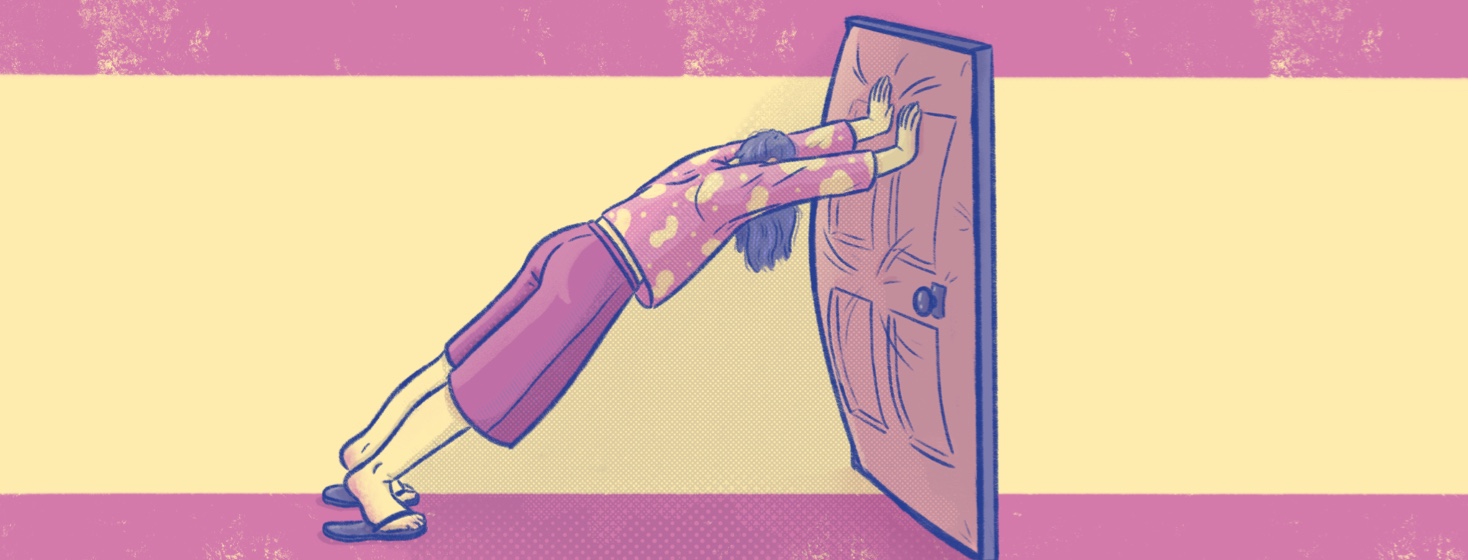Moving Through Denial With Ovarian Cancer
Sometimes, people admit they work best with a deadline or in crisis. It is so common to intellectualize things away rather than to face our reality and feelings. Occasionally, I wonder about the whole of avoidance.
Does holding out create tension that eventually forces a much-needed flow of emotions? Is it this coming to terms with thoughts and feelings that enable a burst of feeling alive?
However, I don't believe for a minute that we choose to have turmoil in our lives. Nonetheless, if this behavior involving avoidance works enough times, it is repeated and considered a standard approach. The conclusion: "I'll just wait on this until I have to."
Facing reality
In truth, most of us do our best to avoid disputes. However, the downside of living with procrastination, denial, or avoidance creates a risk that additional "stuff" might happen along the way.
It is then possible to reach a stress tolerance level. Stress theorists identify a point when we have exhausted all coping resources. The next part of the story results in naturally resorting to creative denial to get by.1
Denial is a bonafide coping measure. It is present for a reason and used when a person can't do better. Denial helps us move past things we can not cope with. It could be we know the conversations we need to have. But our fear stops us in our tracks. If you recall from my previous writings, what circumstances (thoughts) for you set off a range of feelings and stimulate a reaction (behavior)?
For example, it might happen when you learn bad news about your prognosis. Or when another family crisis emerges, like losing a job or a home. While we can't always control our feelings, we can change our thoughts. This mechanism opens us up to choosing behaviors we may not have considered.
Accepting denial as we avoid facing cancer
Often, associated with denial is an emotion such as being sad, fearful, or scared. Not even realizing, when in the discussion, we may select subjects for which we may have a better sense of control. The goal is often, "I don't want to hurt you or be hurt."
Unfortunately, when we spend a lifetime in avoidance and denial, we rob ourselves and everyone around us of ever reaching our authentic selves.
How best to cope
I recently heard a report stating that we are known as a "get over it and move on society." But perhaps we move on before we should. We often avoid or deny real-life issues because we fear our feelings. The prominent reaction is a sadness that surrounds anticipatory loss or even regrets.
Some people find themselves entangled in a complex web that only gets worse. Once again, their immediate intention is to protect themselves from a conflict until they can figure out a solution or find the best time for a discussion.
But, unfortunately, time passes, and the stories mount and get worse. This "figuring out" behavior is an intellectual exercise that denies us from the whole experience and, in particular, dismisses our feeling side.
An important goal provided to us by Cognitive Behavioral Therapists is to learn to acknowledge all that is happening around us. Most importantly, I encourage you to:
- Acknowledge your thoughts and begin to accept any emotions you feel
- Ask yourself, does this make you glad, sad, mad, or scared? These 4 basic feelings can be changed by changing your thoughts.
This will calm your feelings long enough to select the best behavior for the situation.
An aside
Tomorrow I will be undergoing a thoracentesis. My last PET scan shows enough evidence that ovarian cancer has caused a pleural effusion. I am sad, mad, and scared that this could be part of the advance of this disease. My choice is to acknowledge these feelings. I even cried a little and admitted I was feeling sorry for myself. Instead of staying in this emotionally upsetting place, my family and I discussed our feelings.
You, indeed, never need to be alone. Let others be there for you. Consider entering the aOC discussion group and tell your colleagues you need their support. Know that you are loved.
Who has helped you navigate the anger, frustration, and denial that came along with your ovarian cancer diagnosis?
Editor’s Note: We are extremely saddened to say that on August 9, 2024, Ellen Reed passed away. Ellen’s advocacy efforts and writing continue to reach many. She will be deeply missed.


Join the conversation